Did you know that incorporating raw vegetables into your daily diet can have a profound impact on your health? Consuming raw vegetables can provide a wide range of benefits, from increased energy to improved digestion and better skin. The remarkable effects of including fresh produce, such as organic veggies, in your meals cannot be overstated.
Key Takeaways:
- Eating raw vegetables daily can lead to increased energy levels and improved digestion.
- Raw vegetables are packed with essential nutrients that are lost during the cooking process.
- Incorporating raw vegetables into your diet can aid in weight loss and reduce the consumption of processed foods.
- Raw vegetables offer higher levels of antioxidants and water-soluble vitamins.
- Including a variety of raw vegetables and fruits in your meals can provide additional health benefits beyond nutrition.
The Importance of Raw Vegetables for Nutrient Intake
Raw vegetables play a vital role in promoting good health by providing essential enzymes, vitamins, and minerals. Unlike their cooked counterparts, raw vegetables retain their nutritional value, ensuring that you receive maximum benefits. One of the key advantages of consuming raw vegetables is their high content of water-soluble vitamins, such as vitamin C. These vitamins are vulnerable to heat and can break down during the cooking process, potentially leading to nutrient loss.
By incorporating raw vegetables into your diet, you can increase your intake of important nutrients, supporting overall well-being. Enzymes present in raw vegetables aid in digestion and nutrient absorption, ensuring optimal nutrient utilization. Vitamins and minerals found in raw vegetables contribute to various bodily functions, including immune system support, energy production, and bone health. A diverse range of raw vegetables provides an array of nutrients, each playing a unique role in maintaining good health.
“Eating raw vegetables allows for the maximum retention of vitamins, minerals, and enzymes, providing the body with the tools it needs to thrive.”
To visually illustrate the importance of raw vegetables for nutrient intake, let’s compare the nutrient content of raw and cooked broccoli:
| Nutrient | Raw Broccoli (1 cup) | Cooked Broccoli (1 cup) |
|---|---|---|
| Vitamin C | 81.2 mg | 37.2 mg |
| Folate | 57.3 mcg | 57.0 mcg |
| Potassium | 288 mg | 229 mg |
As shown in the table, raw broccoli contains higher levels of vitamin C and potassium compared to cooked broccoli. These nutrients are crucial for immune function and maintaining electrolyte balance in the body.
Incorporating a variety of raw vegetables, such as leafy greens, bell peppers, and carrots, into your daily meals ensures a diverse nutrient profile. Remember to wash raw vegetables thoroughly before consuming to remove any surface contaminants. By prioritizing raw vegetables in your diet, you can optimize your nutrient intake and support good health.
Weight Loss Benefits of Raw Vegetables
When it comes to weight loss, incorporating raw vegetables into your diet can be a game-changer. Raw vegetables are naturally low in calories and high in fiber, making them an excellent choice for those looking to shed some pounds.
The high fiber content found in raw vegetables can help you feel fuller for longer periods, reducing the likelihood of overeating. When you consume foods that are high in fiber, such as raw vegetables, they take longer to digest, providing a sense of satiety and preventing unnecessary snacking or overindulgence in calorie-dense foods.
In addition to being low in calories and high in fiber, raw vegetables are generally less processed than their cooked counterparts. By opting for raw vegetables as part of your weight loss journey, you can reduce your intake of processed foods that are often high in unhealthy fats, salt, and sugar. This shift towards a more natural and nutrient-dense diet can contribute to both weight loss and overall well-being.
So, whether you snack on crisp carrot sticks, enjoy a refreshing salad loaded with leafy greens, or add raw veggies to your favorite smoothie, you can feel confident knowing that you are making a smart choice for your weight loss goals.
The Low-Calorie Advantage
Raw vegetables are naturally low in calories, which means that you can consume larger quantities without worrying about exceeding your daily caloric intake. For example, one cup of sliced cucumbers contains only 16 calories, while a cup of chopped celery provides a mere 16 calories as well. These low-calorie options allow you to enjoy satisfying portions while keeping your overall calorie consumption in check.
The High-Fiber Effect
Fiber is a key factor in weight loss, as it helps regulate appetite and aids in digestion. Raw vegetables are packed with fiber, ensuring that you feel fuller for longer periods and reducing the urge to snack on unhealthy, calorie-dense foods. For example, one cup of broccoli provides about 2.5 grams of fiber, helping you meet your daily fiber goals and promoting a healthy weight.
Reduced Processed Food Intake
By opting for raw vegetables as part of your weight loss journey, you naturally reduce your consumption of processed foods. Processed foods are often high in unhealthy fats, salt, and sugar, which can sabotage your weight loss efforts. The simplicity of raw vegetables allows you to enjoy whole, natural foods that provide vital nutrients while avoiding the additives and extra calories found in processed foods.
| Raw Vegetable | Calories per Serving (1 cup) | Fiber per Serving (1 cup) |
|---|---|---|
| Carrots | 52 | 3.6g |
| Cucumbers | 16 | 0.7g |
| Spinach | 7 | 0.7g |
| Broccoli | 55 | 2.5g |
| Bell Peppers | 29 | 2.5g |
Raw Vegetables vs. Cooked Vegetables
Cooking vegetables can lead to nutrient loss, especially water-soluble vitamins and antioxidants. Antioxidants help prevent cell damage, reduce inflammation, and slow down the signs of aging. While cooked vegetables still provide nutrients, eating them raw ensures that you get the highest levels of antioxidants. Different cooking methods can affect nutrient retention, with steaming being one of the best options for preserving nutrients.
| Cooking Method | Nutrient Retention |
|---|---|
| Steaming | High |
| Boiling | Medium |
| Roasting | Low |
By steaming vegetables, you can retain a significant portion of their nutrients, including vitamins, minerals, and antioxidants. Boiling vegetables can cause some nutrient loss, with water-soluble vitamins being most affected. Roasting vegetables at high temperatures can lead to nutrient degradation, but it can also enhance the flavors, making it a popular cooking method despite the loss of certain nutrients.
“I always try to incorporate a mix of raw and cooked vegetables into my meals to maximize nutrient intake. It’s amazing how a simple change in cooking methods can impact the nutritional value of our food.”
Eating raw vegetables not only provides a higher concentration of antioxidants but also ensures the preservation of other heat-sensitive nutrients. Including a variety of both raw and cooked vegetables in your diet can help you reap all the nutritional benefits and enhance your overall well-being.
Top Raw Vegetables for Maximum Health Benefits
Certain raw vegetables offer exceptional health benefits. Incorporating these nutrient-rich vegetables into your diet can provide you with a wide range of essential vitamins, minerals, and antioxidants. Let’s take a closer look at some of the top raw vegetables for maximum health benefits:
1. Red Bell Pepper
Red bell peppers are not only delicious but also packed with powerful antioxidants and a high concentration of vitamin C. These nutrients can help reduce inflammation in the body, lower the risk of arthritis, and support memory function. Including raw red bell peppers in your meals adds vibrant color and a sweet, crunchy flavor.
2. Kale
Kale is often referred to as a nutritional powerhouse due to its high content of vitamins, minerals, and antioxidants. This leafy green is rich in vitamin K, vitamin A, vitamin C, calcium, and potassium. It is known to support bone health, boost the immune system, and provide anti-inflammatory properties. Enjoy raw kale in salads, smoothies, or as a nutritious addition to your favorite dishes.
3. Beets
Beets are vibrant root vegetables that bring both color and numerous health benefits to your plate. They are rich in antioxidants, fiber, nitrates, and folate. Consuming raw beets can contribute to heart health, regulate blood pressure, and support digestion. The earthy sweetness of beets makes them a versatile addition to salads and juices.
4. Zucchini
Zucchini is a versatile vegetable that can be enjoyed both cooked and raw. When eaten raw, it provides vital nutrients such as potassium, vitamin A, and dietary fiber. Zucchini is low in calories and a great option for those looking to add more vegetables to their diet without compromising on taste. Its mild flavor and crunchy texture make it a perfect addition to raw salads or enjoyed as a healthy snack.
5. Parsnips
Parsnips are a root vegetable that is often overlooked but shouldn’t be underestimated. When consumed raw, parsnips offer essential nutrients like potassium, vitamin C, and fiber. They add a sweet and nutty flavor to dishes and can be grated into salads or enjoyed as a standalone snack. Including parsnips in your raw vegetable repertoire can provide a tasty and nutritious boost to your meals.
By incorporating these raw vegetables into your diet, you can maximize their health benefits and enjoy a variety of flavors, textures, and nutrients. Whether added to salads, juices, or enjoyed on their own, these raw vegetables are sure to enhance your overall wellbeing.
Additional Raw Vegetables and Fruits to Enjoy
In addition to the previously mentioned raw vegetables, there are many other options to explore. Incorporating a variety of raw vegetables and fruits into your diet can provide a wide range of health benefits. Let’s take a closer look at some of these options:
1. Onions: Raw onions offer various health benefits, including heart disease prevention and bone density improvement. They are also a rich source of antioxidants, which can help fight inflammation and protect against certain types of cancer.
2. Tomatoes: Enjoying raw tomatoes can provide you with essential nutrients like vitamin C, potassium, and folate. These nutrients support bone health, regulate blood sugar levels, and promote overall well-being.
3. Blueberries: Blueberries are a true superfood, packed with antioxidants that help protect the body from oxidative stress. They are also lower in calories compared to other fruits, making them a great option for satisfying your sweet tooth while supporting heart health and age-related cognitive decline.
4. Apples: Crunchy and refreshing, apples offer a wide range of benefits. They are rich in dietary fiber, which aids digestion and promotes a feeling of fullness. Apples are also associated with reducing the risk of heart disease and supporting a healthy immune system.
These additional raw vegetables and fruits can be enjoyed on their own, added to salads or smoothies, or incorporated into recipes to enhance flavor and nutrition. Including a variety of raw fruits and vegetables in your diet ensures a diverse mix of vitamins, minerals, and antioxidants.
“The key to a healthy diet is to incorporate a variety of fresh, whole foods, and raw vegetables and fruits are a fantastic way to achieve this.” – Dr. Amanda Green
Increasing Variety in Meals with Raw Vegetables and Fruits
Incorporating raw vegetables and fruits into your meals adds variety and increases the intake of essential vitamins and minerals.
By including different raw vegetables and fruits in your diet, you ensure that you receive a wide range of nutrients required for optimal health. Whether it’s a colorful salad packed with fresh produce or a refreshing fruit smoothie, there are countless ways to enjoy the benefits of raw vegetables and fruits.
Take advantage of the various textures, flavors, and colors that raw vegetables and fruits offer. From crunchy carrots to juicy tomatoes, each bite is a delight for your taste buds.
Here are some ideas for incorporating raw vegetables and fruits into your meals:
- Create a colorful salad bowl with mixed greens, cherry tomatoes, bell peppers, cucumbers, and avocado.
- Make a nutritious green smoothie with spinach, kale, banana, and mango.
- Enjoy a refreshing fruit salad with a medley of berries, watermelon, and pineapple.
- Try spiralizing zucchini or carrots as a low-carb alternative to pasta.
- Add sliced raw vegetables like cucumbers, radishes, and carrots to your sandwiches or wraps.
Quote:
“Eating raw vegetables and fruits not only provides essential vitamins and minerals but also adds excitement and flavor to your meals. Experiment with different combinations and enjoy the amazing benefits of fresh, raw produce.” – Nutritionist Jennifer Thompson
Raw Vegetable and Fruit Nutritional Content
| Vegetable/Fruit | Vitamins | Minerals |
|---|---|---|
| Carrots | Vitamin A, Vitamin K, Vitamin C | Potassium, Iron |
| Spinach | Vitamin K, Vitamin C, Folate | Iron, Magnesium |
| Cucumbers | Vitamin C, Vitamin K | Potassium, Magnesium |
| Oranges | Vitamin C | Potassium |
By incorporating a variety of raw vegetables and fruits into your meals, you can enjoy a diverse range of vitamins and minerals that contribute to your overall health and well-being.
Benefits Beyond Nutrition
Besides the incredible nutritional benefits, consuming raw vegetables and fruits can greatly impact other aspects of your health. Raw vegetables not only provide essential nutrients, but they also offer advantages for your digestive system, energy levels, skin health, and mental well-being.
Improved Digestive System
Eating raw vegetables can help improve your digestive system’s functionality and overall health. The high fiber content in raw vegetables aids in regulating bowel movements and preventing constipation. Additionally, the natural enzymes present in raw vegetables assist in breaking down food, facilitating easier digestion and nutrient absorption.
Enhanced Energy Levels
Raw vegetables are a fantastic source of energy due to their high nutrient content. They provide essential vitamins, minerals, and antioxidants that support your body’s natural energy production. Consuming raw vegetables as part of your daily diet can help combat fatigue and keep your energy levels elevated throughout the day.
Promotes Clear and Healthy Skin
The nutrients found in raw vegetables play a crucial role in maintaining clear and healthy skin. Raw vegetables contain antioxidants that protect against free radicals, reducing the risk of skin damage and premature aging. The hydration provided by raw vegetables also helps keep your skin well-hydrated, giving it a radiant and youthful appearance.
Supports Better Mental Health
Raw vegetables have been linked to improved mental health and overall well-being. The vitamins and minerals found in raw vegetables, such as B vitamins and magnesium, are essential for the proper functioning of the nervous system and neurotransmitter production. Incorporating raw vegetables into your diet can help alleviate stress, improve mood, and enhance cognitive function.
By including raw vegetables and fruits in your daily meals, you can experience a wide range of health benefits beyond just nutrition. Your digestive system will thank you, your energy levels will soar, your skin will glow, and your mental health will thrive. The combination of fiber, hydration, and essential nutrients found in raw vegetables truly makes them a powerhouse for your overall well-being.
Conclusion
Eating raw vegetables offers a host of benefits, contributing to increased nutrient intake, weight loss support, and reduced consumption of processed foods. By choosing to incorporate raw vegetables into your diet, you can enjoy the maximum nutritional value and take advantage of the many health benefits they offer. Additionally, including a variety of raw vegetables and fruits in your meals promotes a nutrient-rich and vibrant lifestyle.
Raw vegetable consumption provides a range of advantages for maintaining good health. The natural state of raw vegetables ensures that essential nutrients, such as enzymes, vitamins, and minerals, are preserved, supporting overall well-being. Incorporating these nutrient-rich vegetables into your meals can help improve digestion, boost energy levels, enhance skin health, and support better mental health.
Furthermore, raw vegetables are especially beneficial for those looking to manage their weight. With their low-calorie content and high fiber content, raw vegetables help keep you feeling full, reducing the likelihood of overeating. By choosing raw vegetables as part of a balanced diet, you can support weight loss and maintain a healthy body composition.
By consuming raw vegetables, you also reduce your intake of processed foods. Raw vegetables offer a natural and unprocessed alternative to many convenience foods, which often contain unhealthy fats, high levels of sodium, and added sugars. Opting for raw vegetables instead can help lower your overall intake of these detrimental ingredients, promoting better overall health.
Incorporating a wide variety of raw vegetables and fruits into your diet further enhances the nutrient density of your meals. By experimenting with different types of raw vegetables, you ensure that you receive a comprehensive range of essential vitamins, minerals, and antioxidants. From the vibrant red bell pepper to the leafy green kale, each raw vegetable offers its unique health advantages.
In conclusion, embracing the benefits of raw vegetable consumption is an excellent way to optimize your diet for better health and well-being. By prioritizing raw vegetables, you can increase your nutrient intake, support weight loss goals, reduce processed food consumption, and enjoy a more vibrant and energetic lifestyle.
FAQ
Is it safe to eat raw vegetables? Yes, as long as they are properly cleaned and washed. Raw vegetable consumption can provide numerous health benefits, such as increased nutrient intake and improved digestion. However, to minimize the risk of food-borne illnesses, it’s essential to practice good hygiene when handling and preparing raw vegetables.
Can you eat spinach raw? Yes, but precautions should be taken to ensure safety. Raw spinach has been associated with food-borne illnesses due to potential contamination. To minimize any risks, it is recommended to refrigerate spinach and thoroughly wash it before consuming. By following these guidelines, you can safely enjoy the nutritional benefits of raw spinach.
Are there any disadvantages to eating raw vegetables and fruits? While raw vegetable consumption has numerous advantages, there can be some risks to consider. For example, raw vegetables may contain toxins or harmful bacteria. However, these disadvantages can be minimized by following proper food safety practices, such as washing produce thoroughly and storing it correctly. Overall, the health benefits of consuming raw vegetables and fruits outweigh the potential drawbacks when proper precautions are taken.

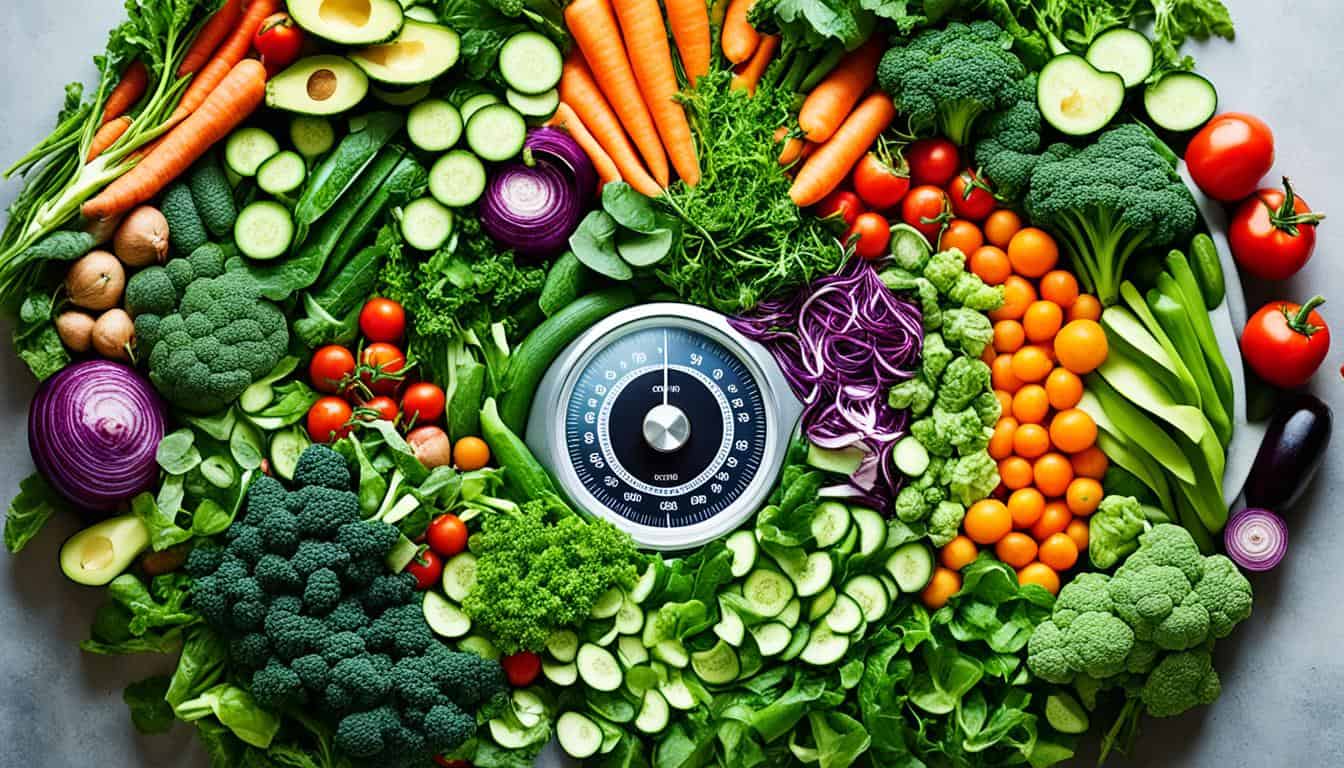
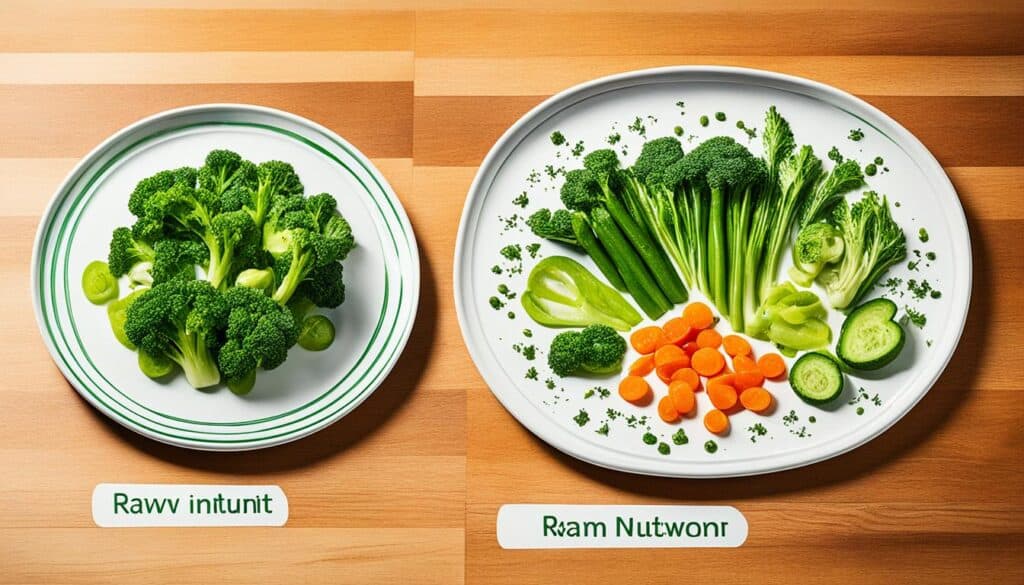
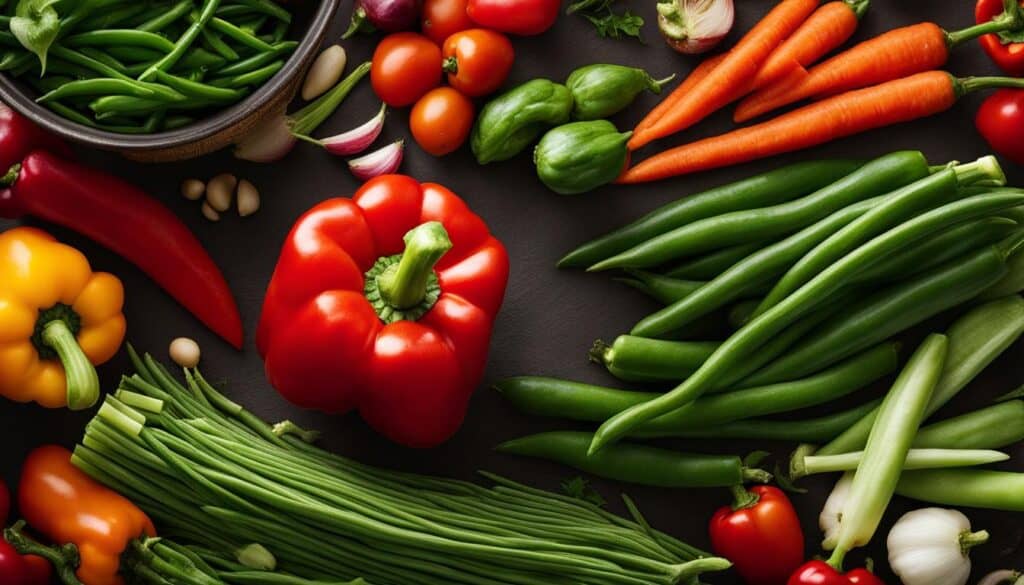
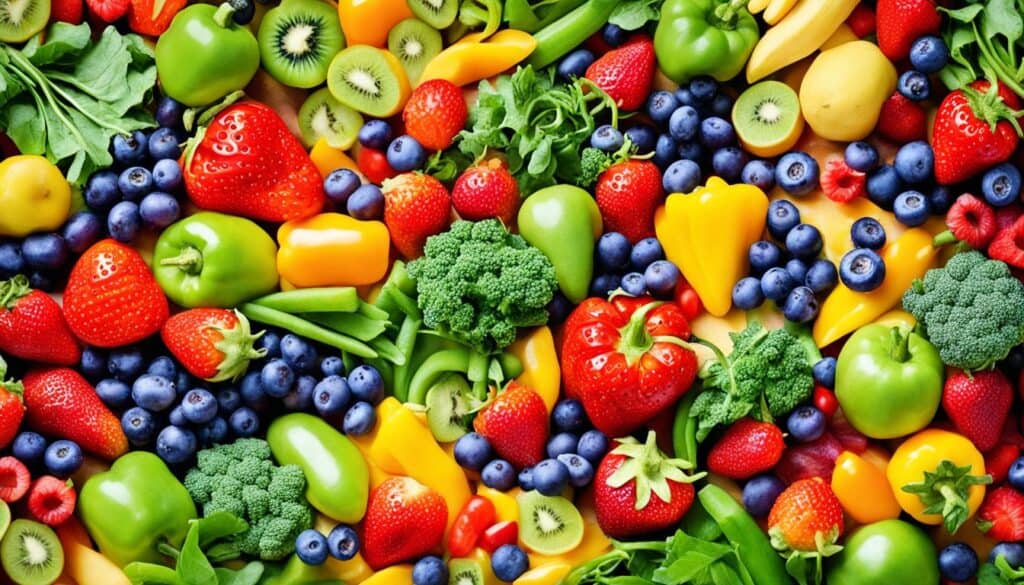
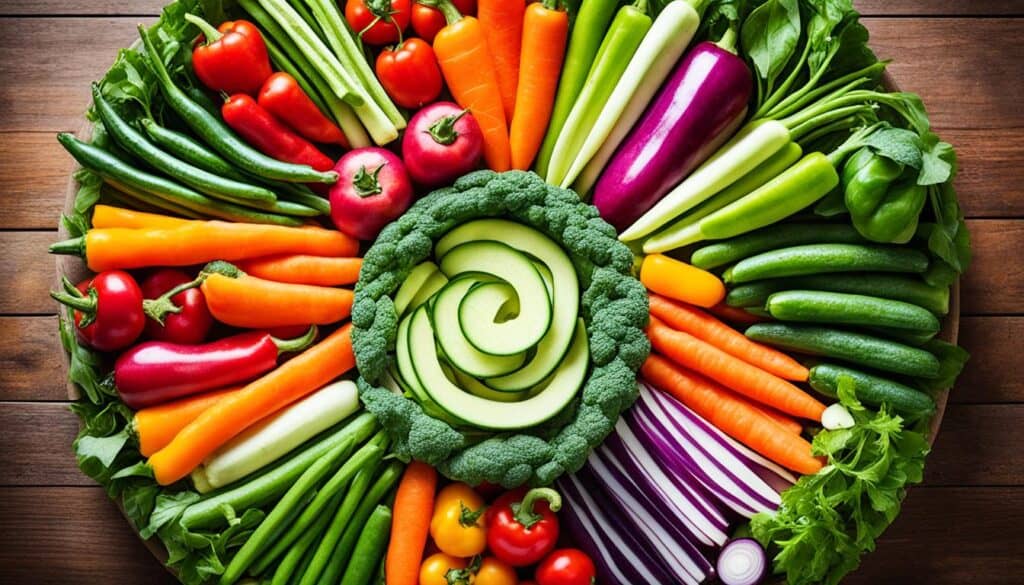




Leave a Reply